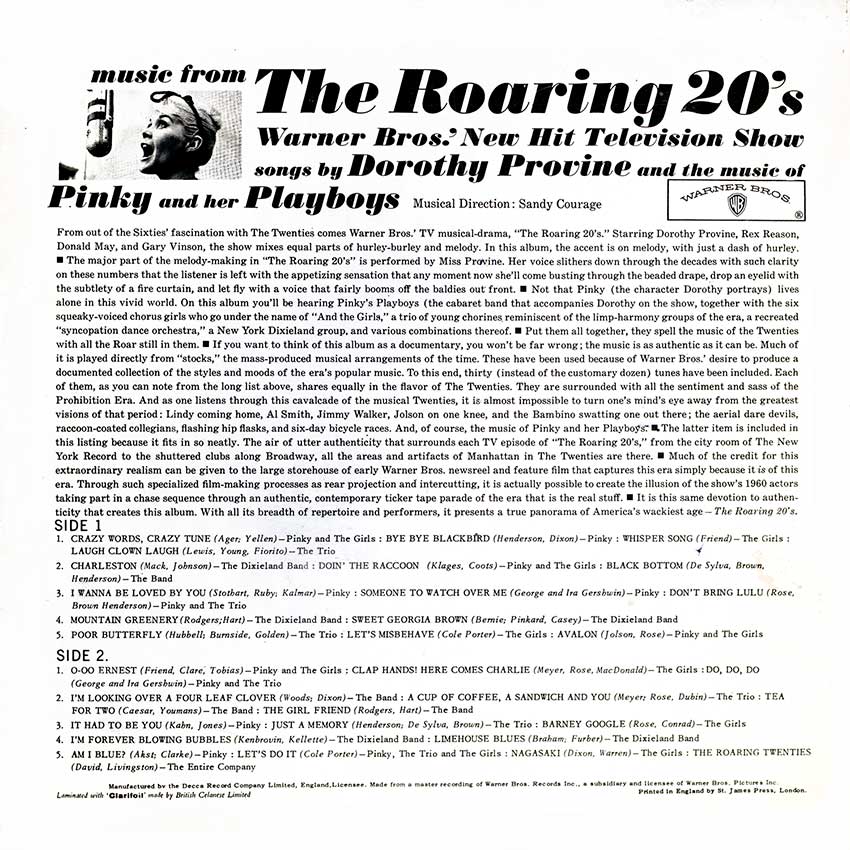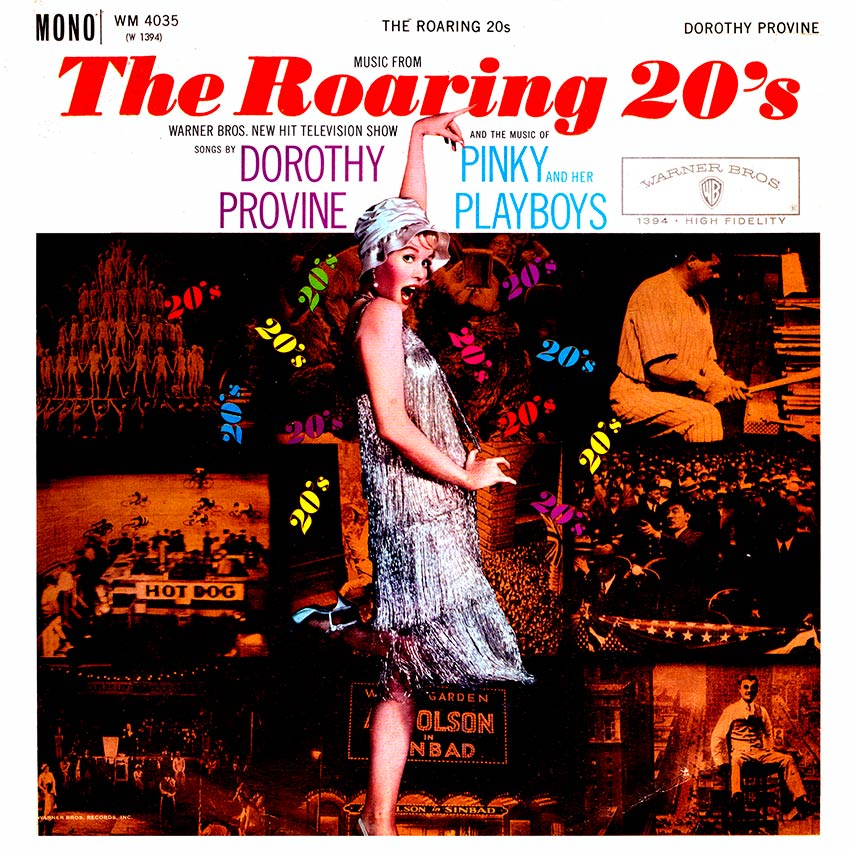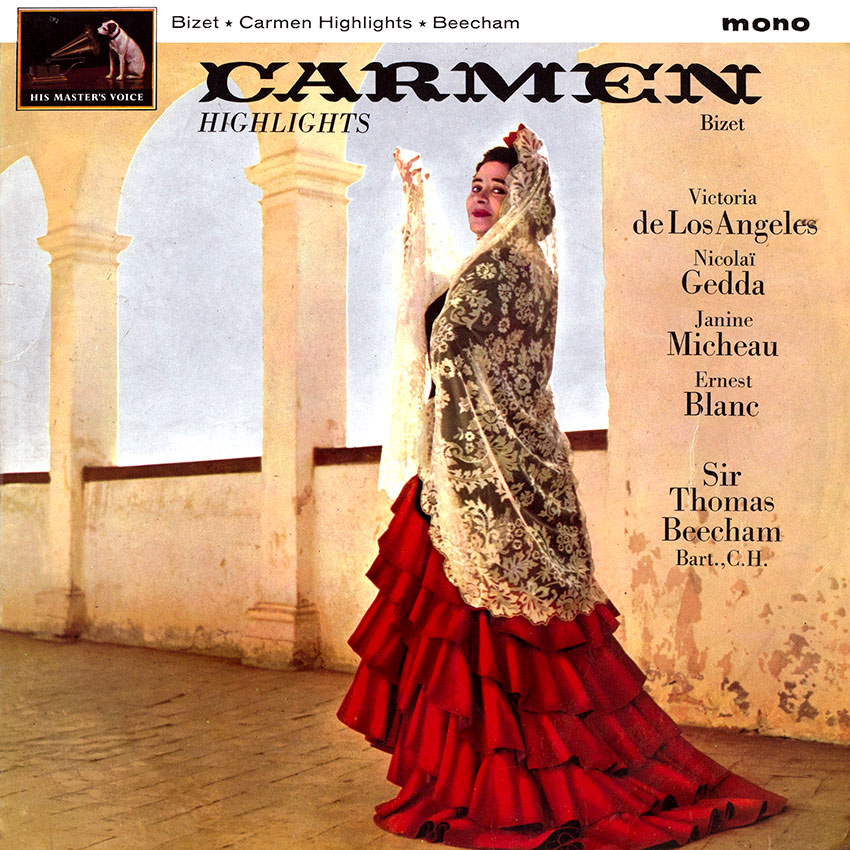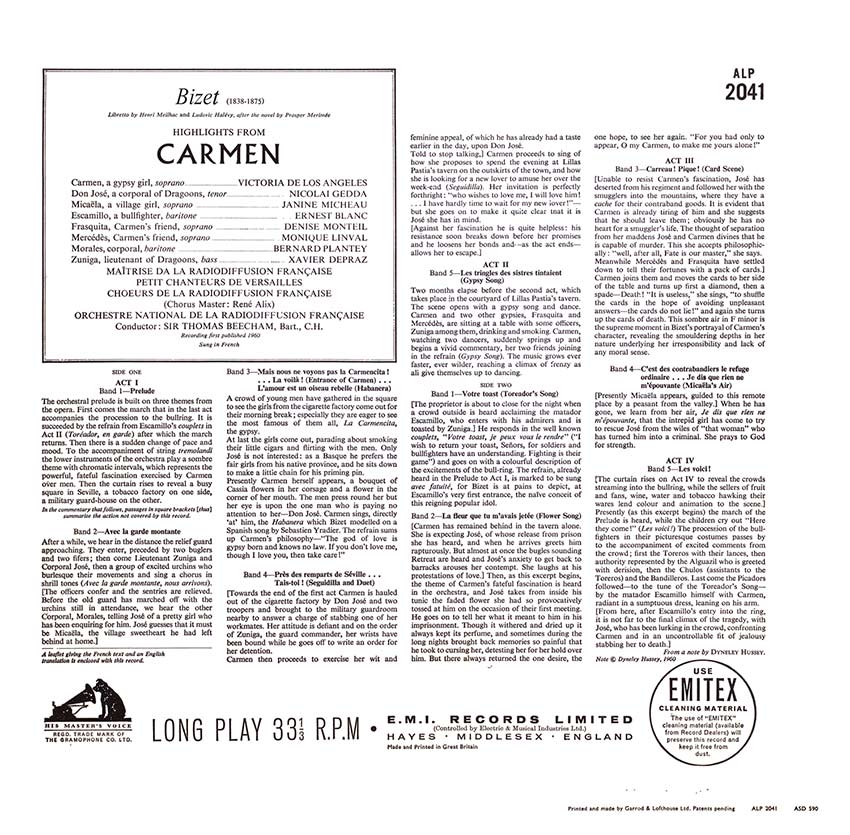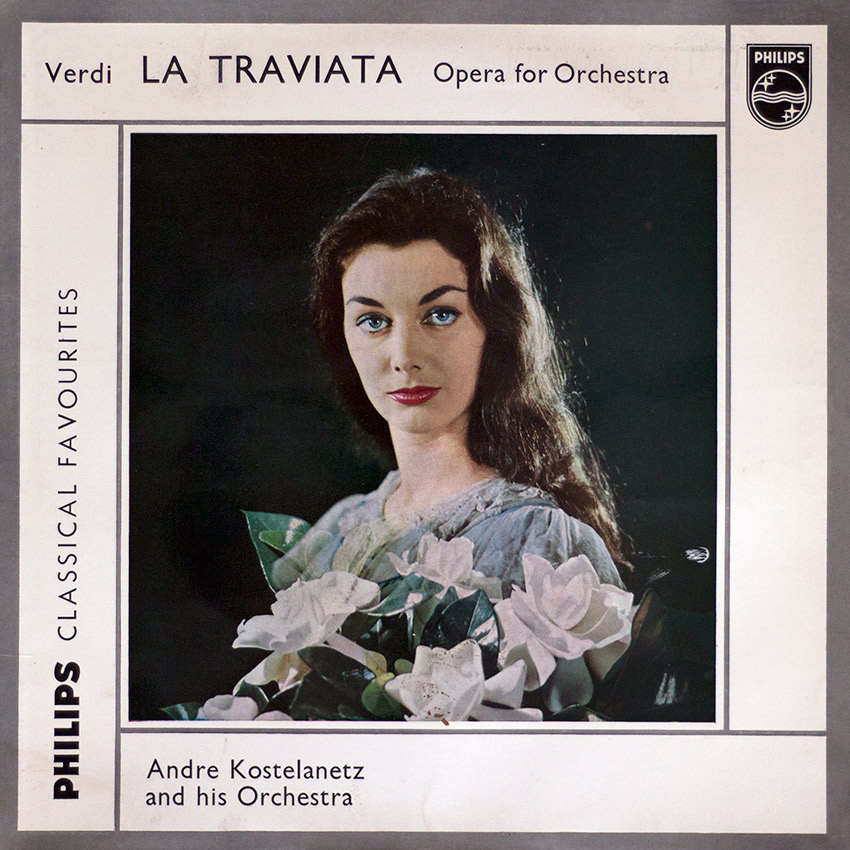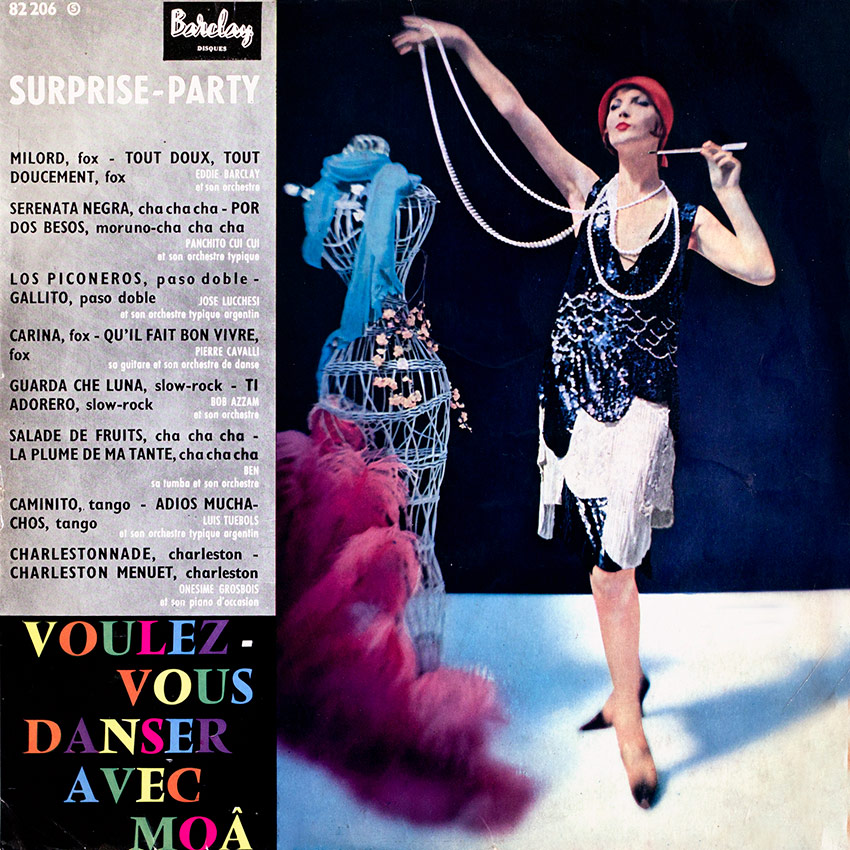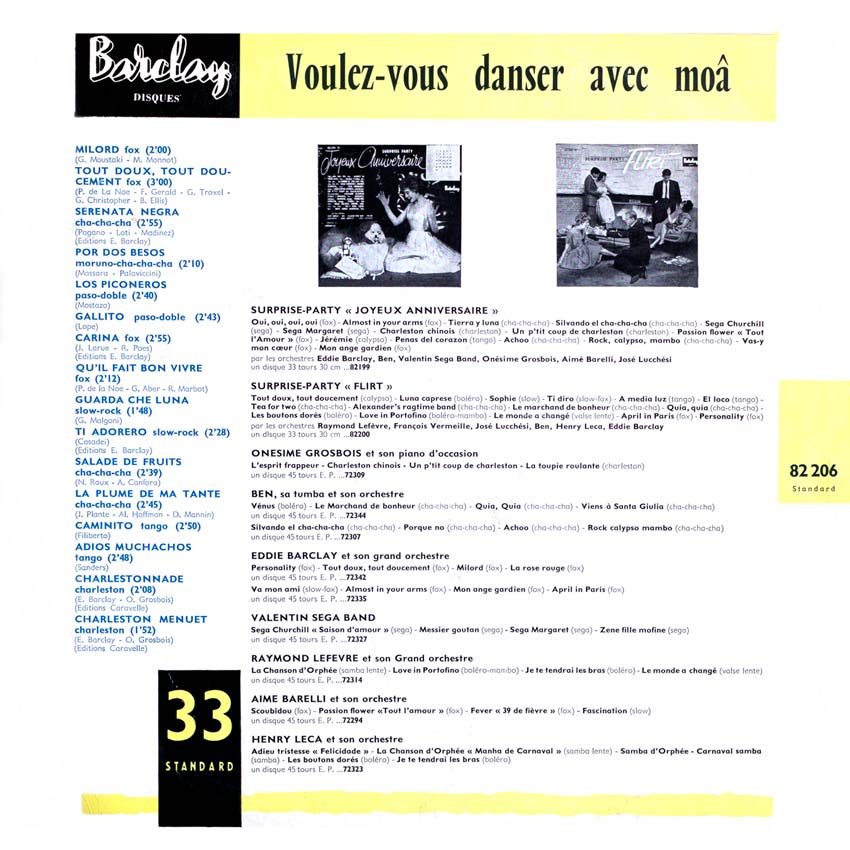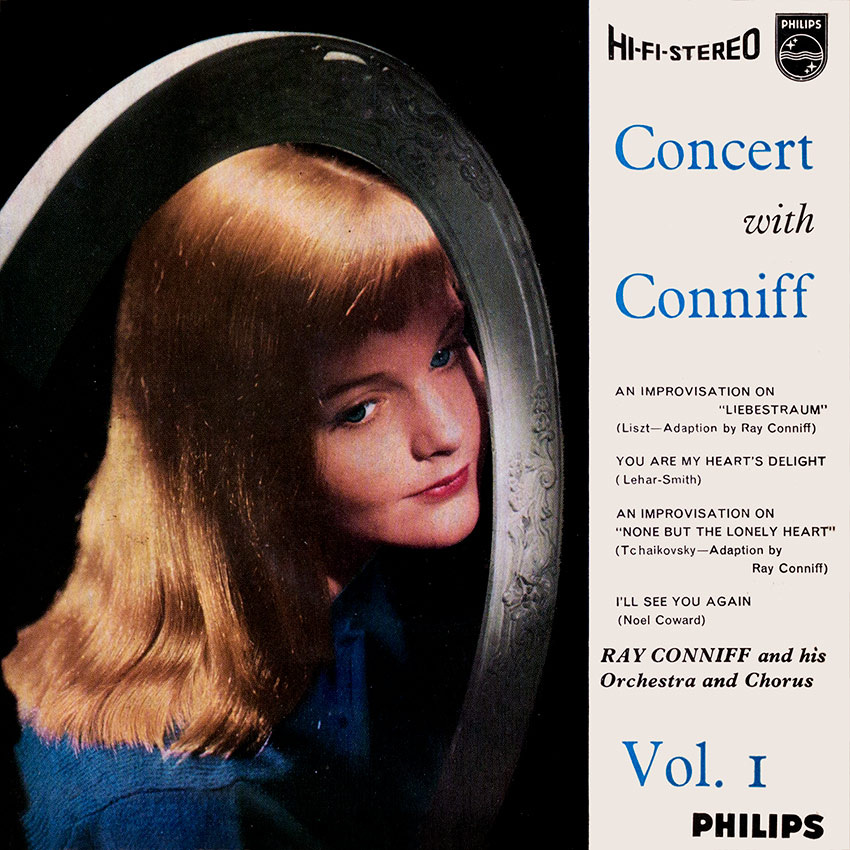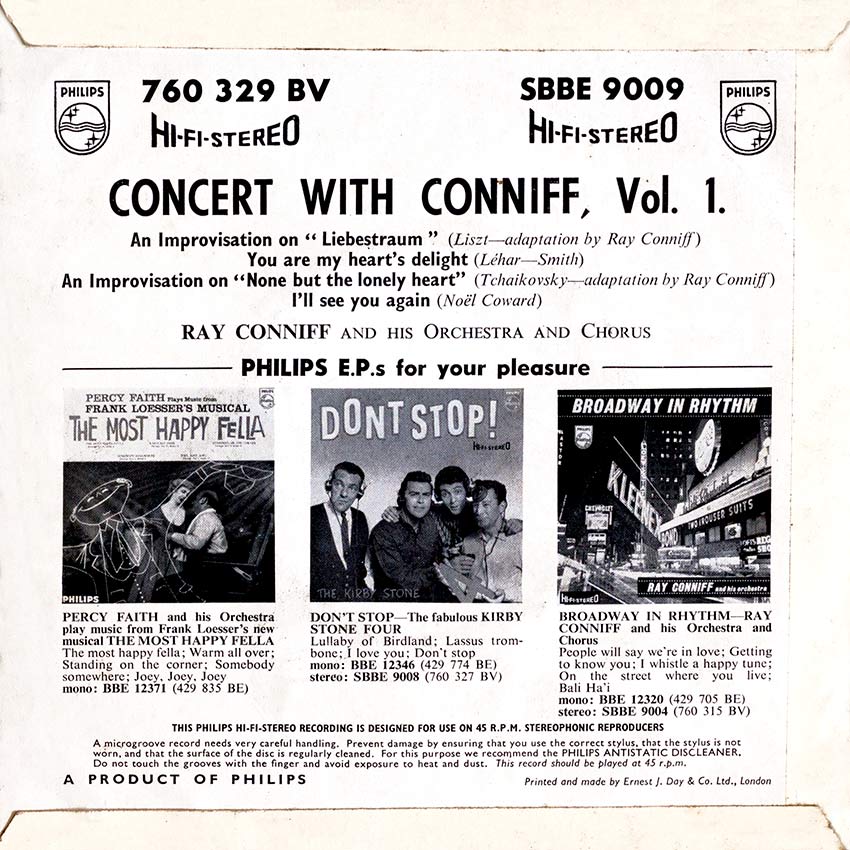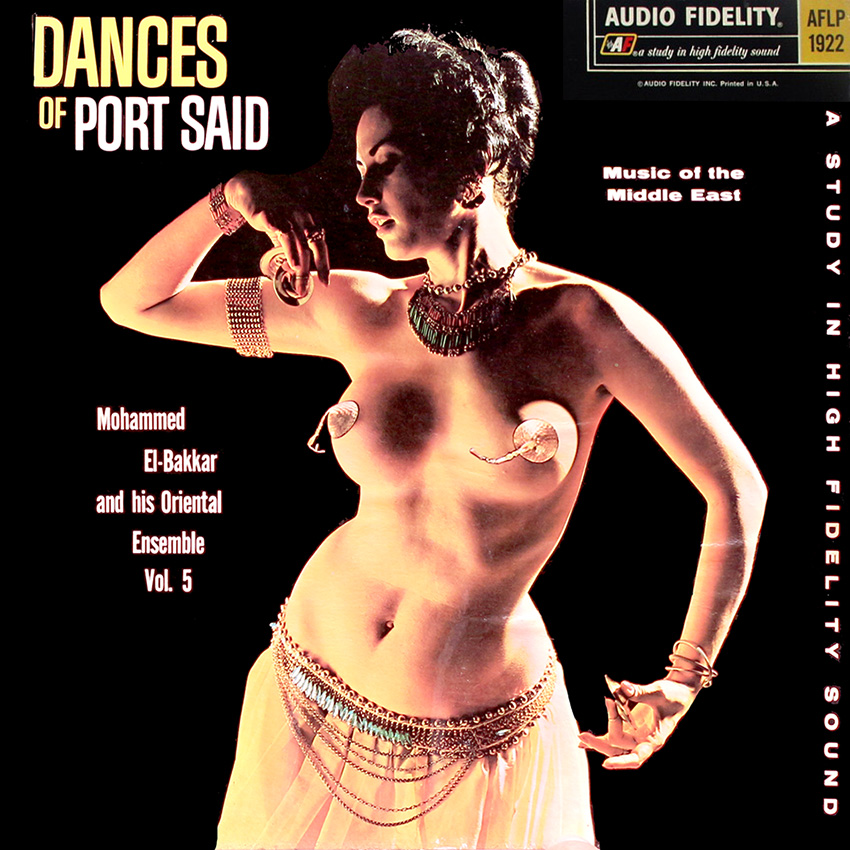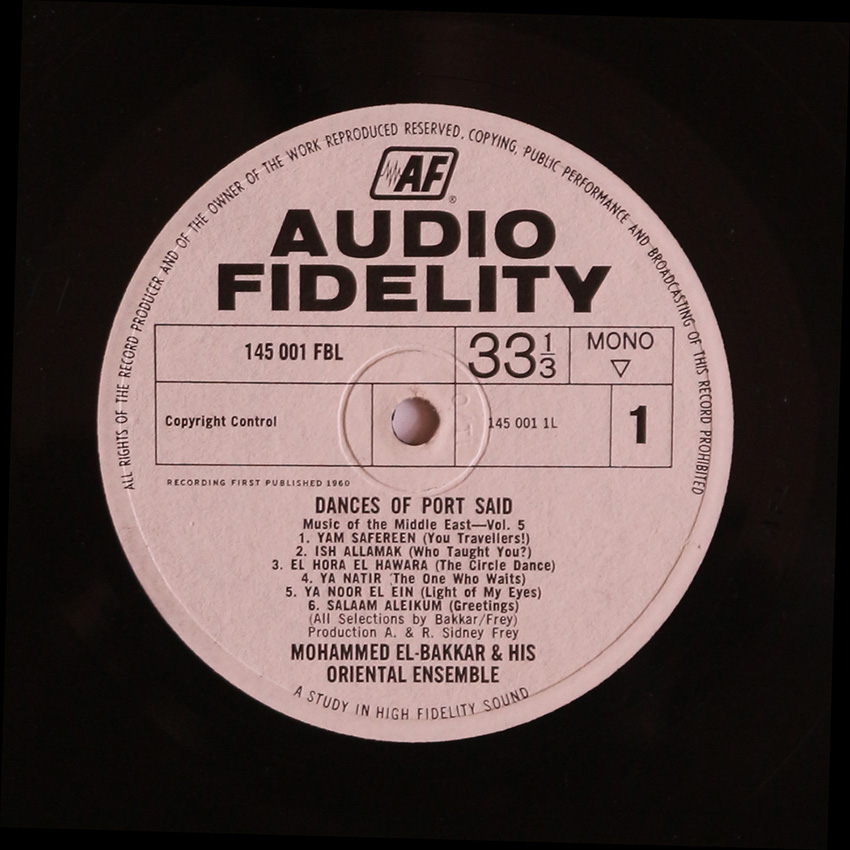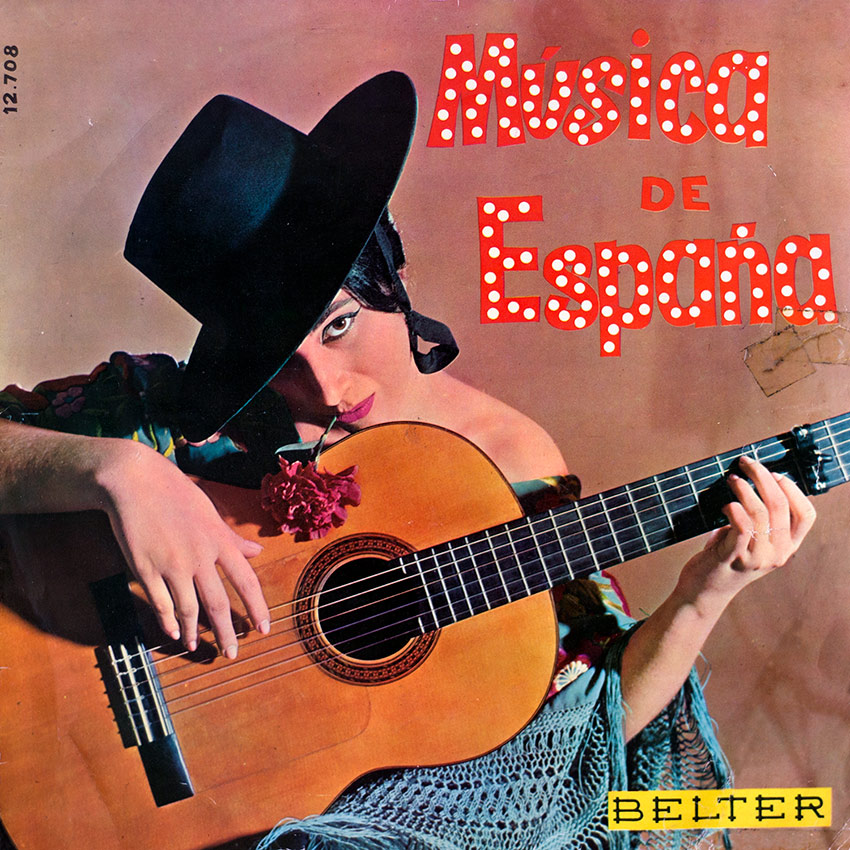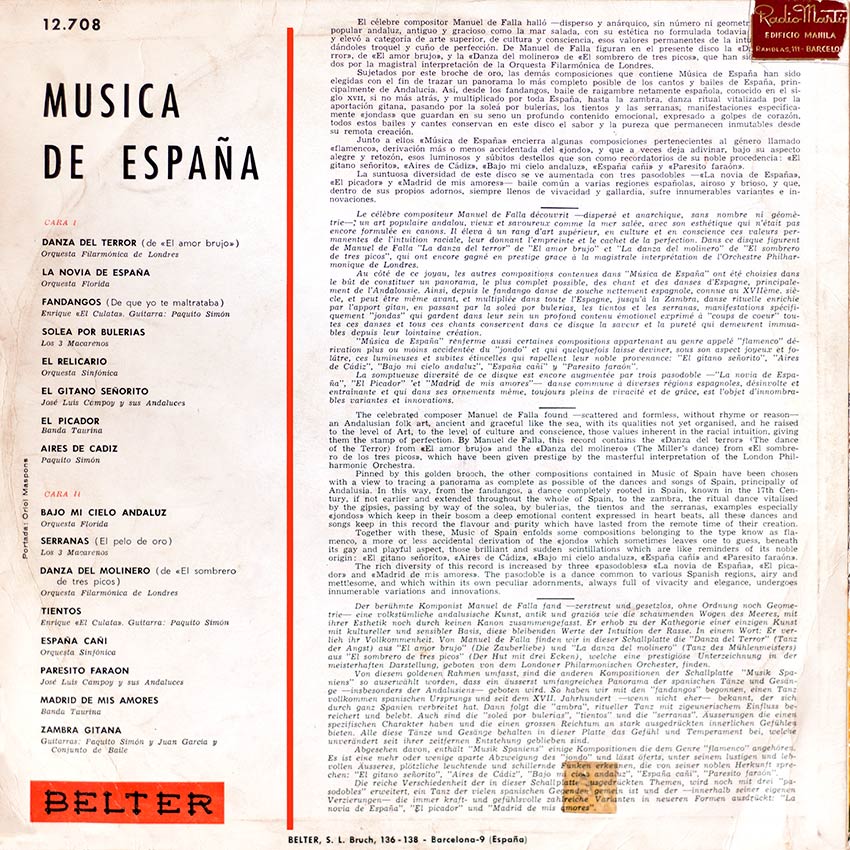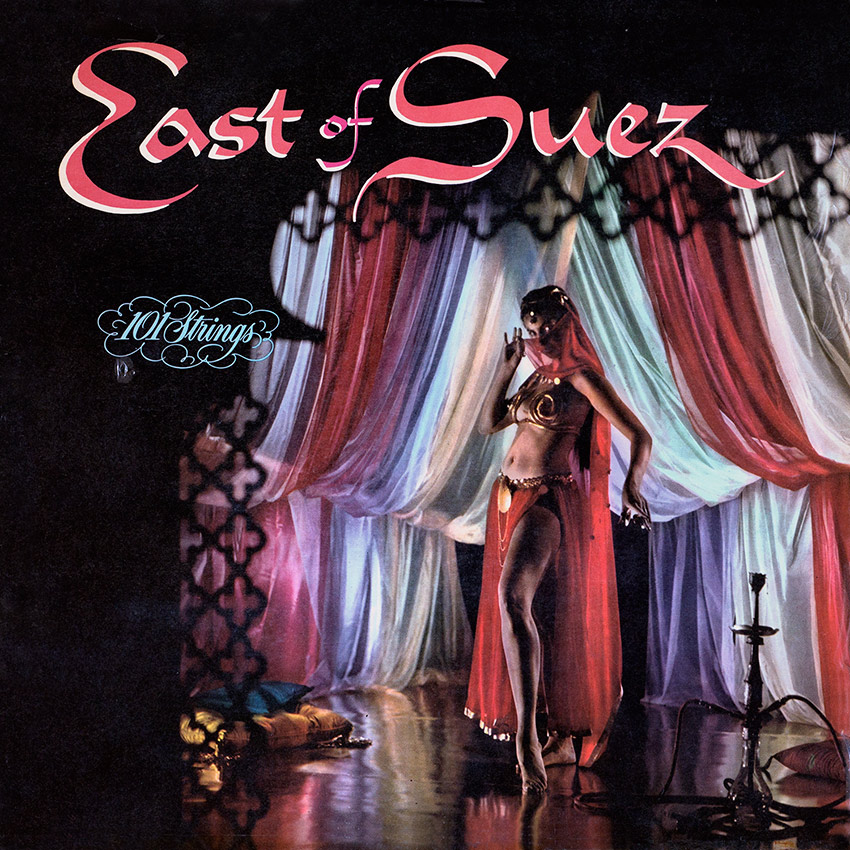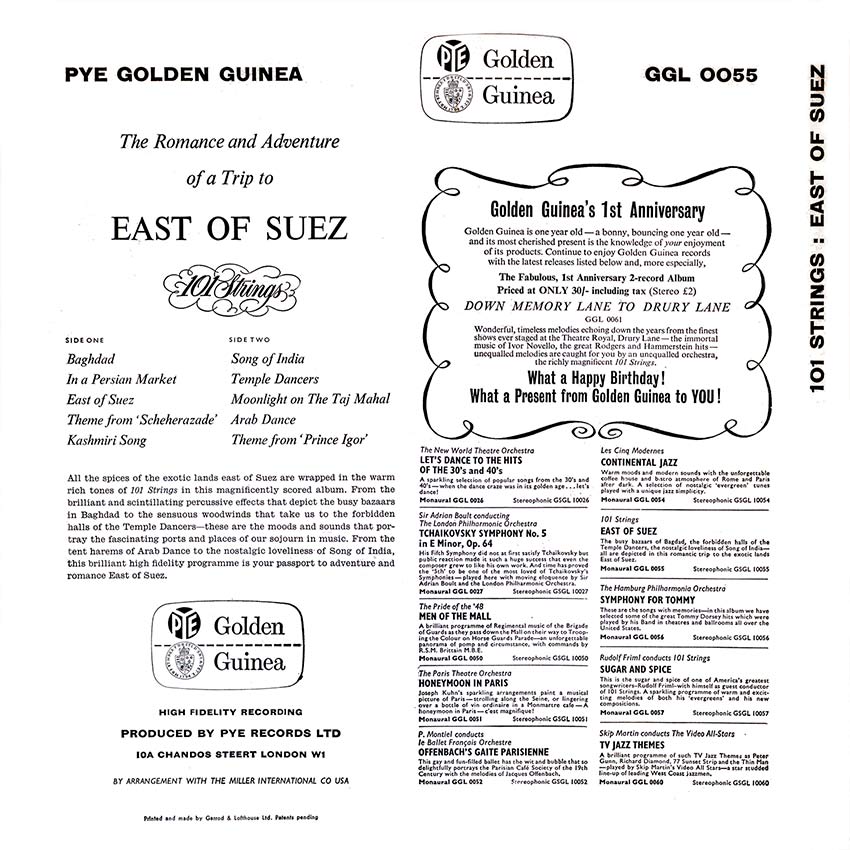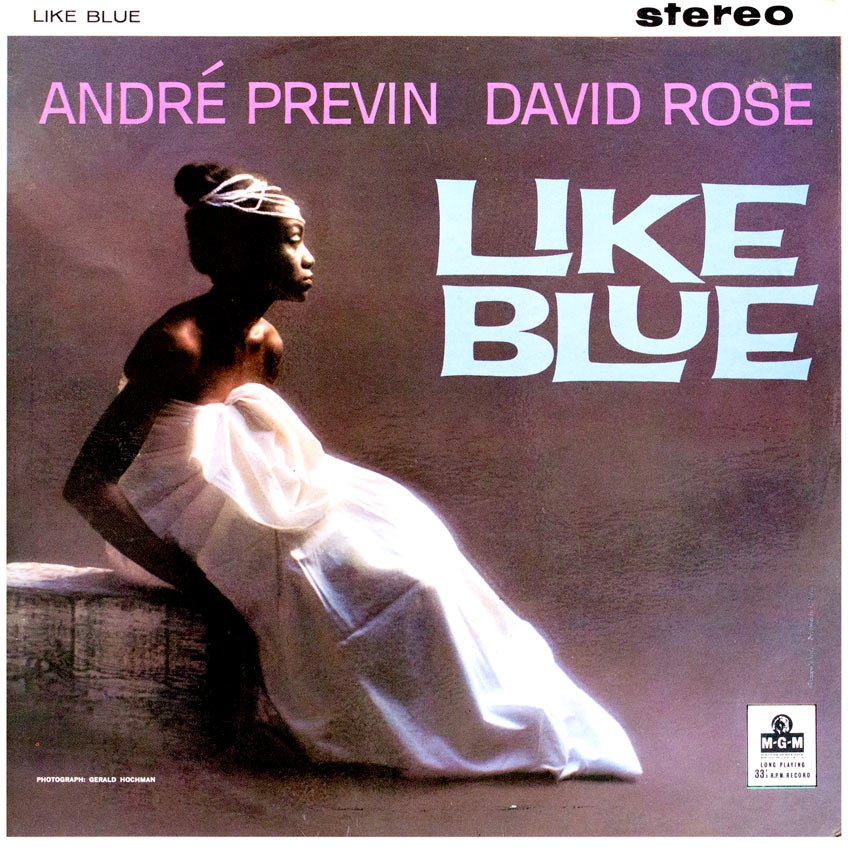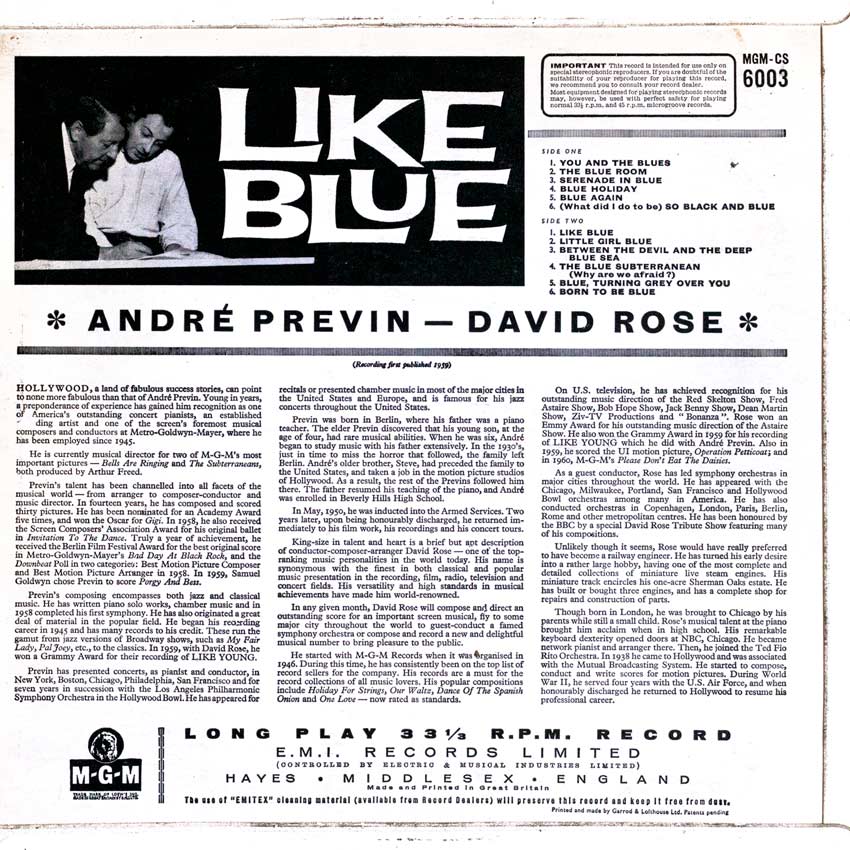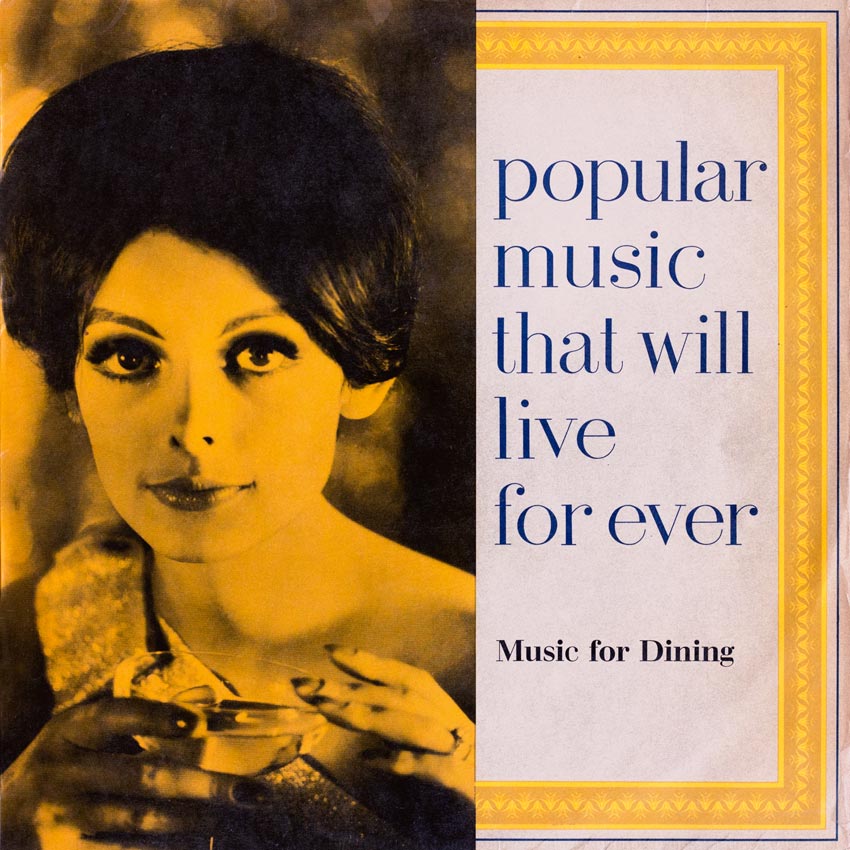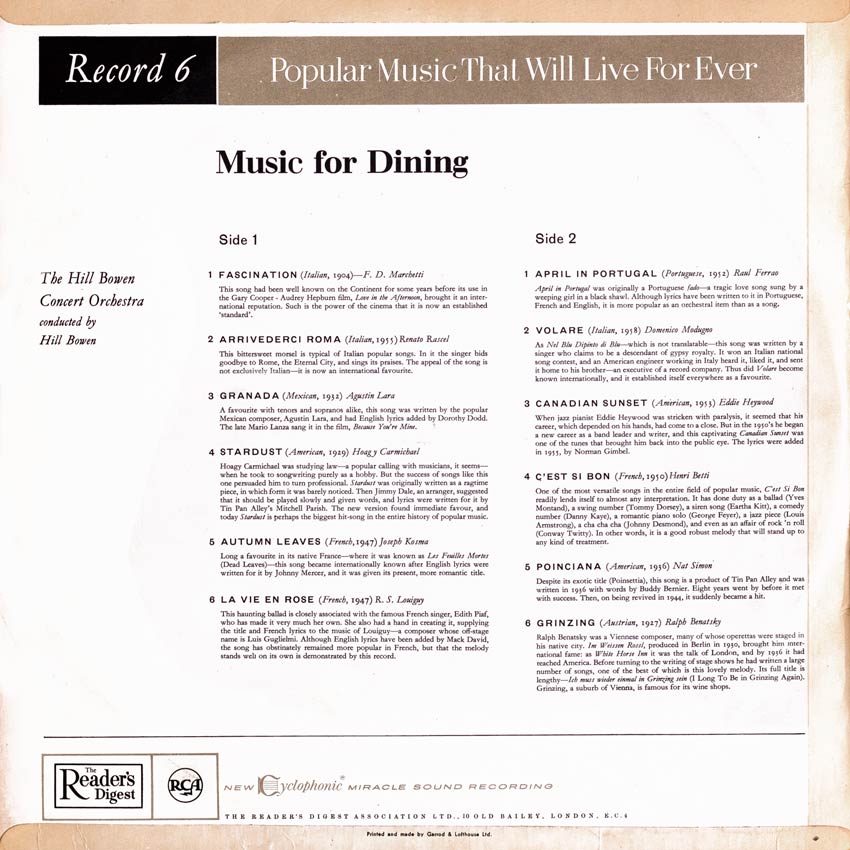To the accompaniment of string tremolandi the lower instruments of the orchestra play a sombre theme with chromatic intervals, which represents the powerful, fateful fascination exercised by Carmen over men. Then the curtain rises to reveal a busy square in Seville, a tobacco factory on one side, a military guard-house on the other. In the commentary that follows, passages in square brackets [thus] summarise the action not covered by this record.
Band 2 – Avec la garde montante After a while, we hear in the distance the relief guard approaching. They enter, preceded by two buglers and two fifers; then come Lieutenant Zuniga and Corporal Jose, then a group of excited urchins who burlesque their movements and sing a chorus in shrill tones (Avec la garde montante, nous arrivons). [The officers confer and the sentries are relieved. Before the old guard has marched off with the urchins still in attendance, we hear the other Corporal, Morales, telling Jose of a pretty girl who has been enquiring for him. Jose guesses that it must be Micaela, the village sweetheart he had left behind at home.]
Band 3 – Mais nous ne voyons pas la Carmencita! La voila! (Entrance of Carmen) .. . L’amour est un oiseau rebelle (Habanera) A crowd of young men have gathered in the square to see the girls from the cigarette factory come out for their morning break ; especially they are eager to see the most famous of them all, La Carmencita, the gypsy. At last the girls come out, parading about smoking their little cigars and flirting with the men. Only Jose is not interested : as a Basque he prefers the fair girls from his native province, and he sits down to make a little chain for his priming pin. Presently Carmen herself appears, a bouquet of Cassia flowers in her corsage and a flower in the corner of her mouth. The men press round her but her eye is upon the one man who is paying no attention to her – Don Jose. Carmen sings, directly `at’ him, the Habanera which Bizet modelled on a Spanish song by Sebastien Yradier. The refrain sums up Carmen’s philosophy – “The god of love is gypsy born and knows no law. If you don’t love me, though I love you, then take care 1”
Band 4 – Pres des remparts de Seville .. . Tais-toi! (Seguidilla and Duet) [Towards the end of the first act Carmen is hauled out of the cigarette factory by Don Jose and two troopers and brought to the military guardroom nearby to answer a charge of stabbing one of her workmates. Her attitude is defiant and on the order of Zuniga, the guard commander, her wrists have been bound while he goes off to write an order for her detention. Carmen then proceeds to exercise her wit and feminine appeal, of which he has already had a taste earlier in the day, upon Don Jose. Told to stop talking,] Carmen proceeds to sing of how she proposes to spend the evening at Lillas Pastia’s tavern on the outskirts of the town, and how she is looking for a new lover to amuse her over the week-end (Seguidilla). Her invitation is perfectly forthright : “who wishes to love me, 1 will love him ! . . . 1 have hardly time to wait for my new lover !” – but she goes on to make it quite clear that it is Jose she has in mind. [Against her fascination he is quite helpless : his resistance soon breaks down before her promises and he loosens her bonds and – as the act ends – allows her to escape.]
ACT II Band 5 – Les tringles des sistres tintaient (Gypsy Song) Two months elapse before the second act, which takes place in the courtyard of Lillas Pastia’s tavern. The scene opens with a gypsy song and dance. Carmen and two other gypsies, Frasquita and Mercedes, are sitting at a table with some officers, Zuniga among them, drinking and smoking. Carmen, watching two dancers, suddenly springs up and begins a vivid commentary, her two friends joining in the refrain (Gypsy Song). The music grows ever faster, ever wilder, reaching a climax of frenzy as all give themselves up to dancing.
SIDE TWO Band 1 – Votre toast (Toreador’s Song) [The proprietor is about to close for the night when a crowd outside is heard acclaiming the matador Escamillo, who enters with his admirers and is toasted by Zuniga.] He responds in the well known couplets, “Votre toast, je peux vous le rendre” (“I wish to return your toast, Senors, for soldiers and bullfighters have an understanding. Fighting is their game”) and goes on with a colourful description of the excitements of the bull-ring. The refrain, already heard in the Prelude to Act I, is marked to be sung avec fatuite, for Bizet is at pains to depict, at Escamillo’s very first entrance, the naïve conceit of this reigning popular idol.
Band 2 – La fleur que to m’avais jetee (Flower Song) [Carmen has remained behind in the tavern alone. She is expecting Jose, of whose release from prison she has heard, and when he arrives greets him rapturously. But almost at once the bugles sounding Retreat are heard and Jose’s anxiety to get back to barracks arouses her contempt. She laughs at his protestations of love.] Then, as this excerpt begins, the theme of Carmen’s fateful fascination is heard in the orchestra, and Jose takes from inside his tunic the faded flower she had so provocatively tossed at him on the occasion of their first meeting. He goes on to tell her what it meant to him in his imprisonment. Though it withered and dried up it always kept its perfume, and sometimes during the long nights brought back memories so painful that he took to cursing her, detesting her for her hold over him. But there always returned the one desire, the one hope, to see her again. “For you had only to appear, 0 my Carmen, to make me yours alone !”
ACT III Band 3 – Carreau! Pique! (Card Scene) [linable to resist Carmen’s fascination, Jose has deserted from his regiment and followed her with the smugglers into the mountains, where they have a cache for their contraband goods. It is evident that Carmen is already tiring of him and she suggests that he should leave them ; obviousiy he has no heart for a smuggler’s life. The thought of separation from her maddens Jose and Carmen divines that he is capable of murder. This she accepts philosophic-ally : “well, after all, Fate is our master,” she says. Meanwhile Mercedes and Frasquita have settled down to tell their fortunes with a pack of cards.] Carmen joins them and moves the cards to her side of the table and turns up first a diamond, then a spade – Death ! “It is useless,” she sings, “to shuffle the cards in the hope of avoiding unpleasant answers – the cards do not lie !” and again she turns up the cards of death. This sombre air in F minor is the supreme moment in Bizet’s portrayal of Carmen’s character, revealing the smouldering depths in her nature underlying her irresponsibility and lack of any moral sense.
Band 4 – C’est des contrabandlers le refuge ordinaire . . . Je dis que den ne neepouvante (Micaela’s Air) [Presently Micaela appears, guided to this remote place by a peasant from the valley.] When he has gone, we learn from her air, Je dis que rlen ne m’epouvante, that the intrepid girl has come to try to rescue Jose from the wiles of “that woman” who has turned him into a criminal. She prays to God for strength.
ACT IV Band 5 – Les void! [The curtain rises on Act IV to reveal the crowds streaming into the bullring, while the sellers of fruit and fans, wine, water and tobacco hawking their wares lend colour and animation to the scene.] Presently (as this excerpt begins) the march of the Prelude is heard, while the children cry out “Here they come !” (Les void !) The procession of the bull-fighters in their picturesque costumes passes by to the accompaniment of excited comments from the crowd ; first the Toreros with their lances, then authority represented by the Alguazil who is greeted with derision, then the Chulos (assistants to the Toreros) and the Bandilleros. Last come the Picadors followed – to the tune of the Toreador’s Song – by the matador Escamillo himself with Carmen, radiant in a sumptuous dress, leaning on his arm. [From here, after Escamillo’s entry into the ring, it is not far to the final climax of the tragedy, with Jose, who has been lurking in the crowd, confronting Carmen and in an uncontrollable fit of jealousy stabbing her to death.]
From a note by DYNELEY HUSSEY. Note © Dyneley Hussey, 1960
